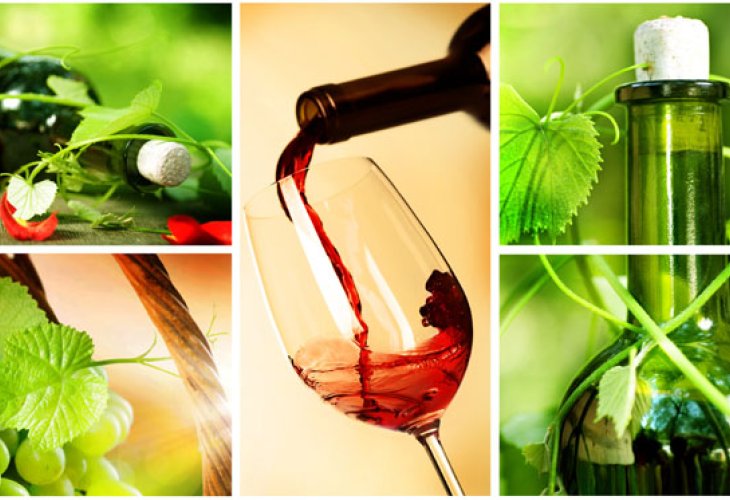Jewish Law
Wine and Whiskey in Jewish Law: The Spiritual Balance Between Joy and Self-Control
Why Judaism sanctifies wine yet warns against intoxication, exploring the fine line between celebration, holiness, and addiction
- Dudu Cohen
- |Updated

Alcohol can be confusing. On one hand, Jewish sources describe many tragic consequences of drunkenness — from disgrace to violence and even murder, implying that one should keep a safe distance from anything that clouds the mind. On the other hand, wine holds a unique and sacred place in Judaism. It has its own blessing (“Borei Pri HaGafen”), it sanctifies the Shabbat, weddings, and brit milah ceremonies, and on Purim, drinking wine is even considered a mitzvah. And yet, problems often arise when people use that as an excuse for reckless intoxication. What exactly is the Jewish view on alcohol?
Wine: A Source of Joy — When Used Wisely
Rabbi Pinchas Badush prefers to begin with the positive aspects: “It is written, ‘Wine gladdens the heart of man.’ The Torah calls wine ‘holy for rejoicing before God,’ but it also commands, ‘You shall be holy.’ Rambam explains that this means one must beware of becoming what he calls a ‘scoundrel within the bounds of Torah.’”
A person may technically follow the laws, such as drinking only the finest kosher wine, yet still misuse it. “We must know not only what to use,” says Rabbi Badush, “but how. Just as someone might use a car for holy purposes, but if he drives recklessly, the same tool of good becomes a weapon of harm.”
What About Other Alcoholic Drinks?
Rabbi Badush continues: “The quality of true joy is found only in wine which is why it has a unique blessing. Other alcoholic drinks such as vodka, beer, and the like, may alter one’s mood, but they don’t bring genuine joy. In small, occasional amounts they can be acceptable, but when drinking becomes habitual, it’s like a drug — an escape from responsibility rather than a path to elevation.”
Rambam’s Balance: Moderation and Intention
Rabbi Yitzchak Gabay adds: “Rambam writes that when a person drinks wine during a meal, he should do so for the sake of Heaven. In Hilchot De’ot he states: ‘Anyone who becomes drunk is sinful, disgraceful, and loses his wisdom.’
He points to Megillat Esther: “It says, ‘The drinking was by law; none were compelled.’ The Sages explain that food was always more abundant than wine — meaning the drinking was refined, and not hedonistic. There’s no permission in Torah for drunkenness.”
The First Warning: Noach’s Drunkenness
Rabbi Gabay reminds us that the Torah itself condemns intoxication: “After the flood, Noach planted a vineyard, drank wine, became drunk, and exposed himself. The Torah says, ‘He began (vayachel) to plant a vineyard,’ which also means ‘he became profane’ — implying that his holiness diminished because of drunkenness.”
The Parable of the Sheep, Lion, and Pig
Rabbi Eli Amar cites a Midrash: “When Noach planted his vineyard, Satan slaughtered a sheep, a lion, and a pig, and spilled their blood on the vines. When a person starts drinking, he’s like a sheep — gentle and happy. After another glass, he becomes a lion — boastful and loud. After the third, he turns into a pig — losing control, vomiting, and disgracing himself. Wine has a progressive effect.”
Purim and the Limits of Intoxication
Rabbi Gabay clarifies: “Even on Purim, one must not get completely drunk. The mitzvah is to drink ‘ad d’lo yada’ — to a mild, joyful state, but not to lose one’s clarity. Drunkenness can lead to neglecting mitzvot. What matters is the inner content of the person. As it says, ‘When wine enters, secrets emerge.’ Both ‘wine’ and ‘secret’ equal 70 in gematria. Wine reveals what’s inside: if one’s inner world is holy, Torah will emerge; if not, something darker will.”
He recalls: “At my yeshiva, even those who drank would dance with Gemaras in hand. No fights or vulgarity — only joy and song. It all depends on what’s inside a person.”
Should Alcohol Be Banned Altogether?
Rabbi Badush answers: “We must be careful not to forbid what people can’t realistically uphold. Those who misuse alcohol will ignore any ban anyway. The Sages tell of a heretic who asked: ‘Why doesn’t God abolish the sun and moon, since idolaters worship them?’ The reply: ‘God created them for the world’s benefit. If some use them destructively, that doesn’t mean He should deny their value to everyone.’”
Rabbi Amar concludes: “Judaism is about balance. The Torah doesn’t demand abstinence — only proper measure. We sanctify material life through wine: it’s used for Kiddush. The guiding principle is moderation — neither indulgence nor denial. Still, if a person knows he can’t control himself, he must refrain. Like the Nazirite who was told not even to pass near a vineyard — so too, one who often loses control should stay away entirely.”
Judaism doesn’t condemn wine — it elevates it. At the same time, it demands awareness, restraint, and sanctity. Used correctly, wine brings joy and holiness, but when abused, it leads to shame and downfall. The choice, as always, lies in human hands.

